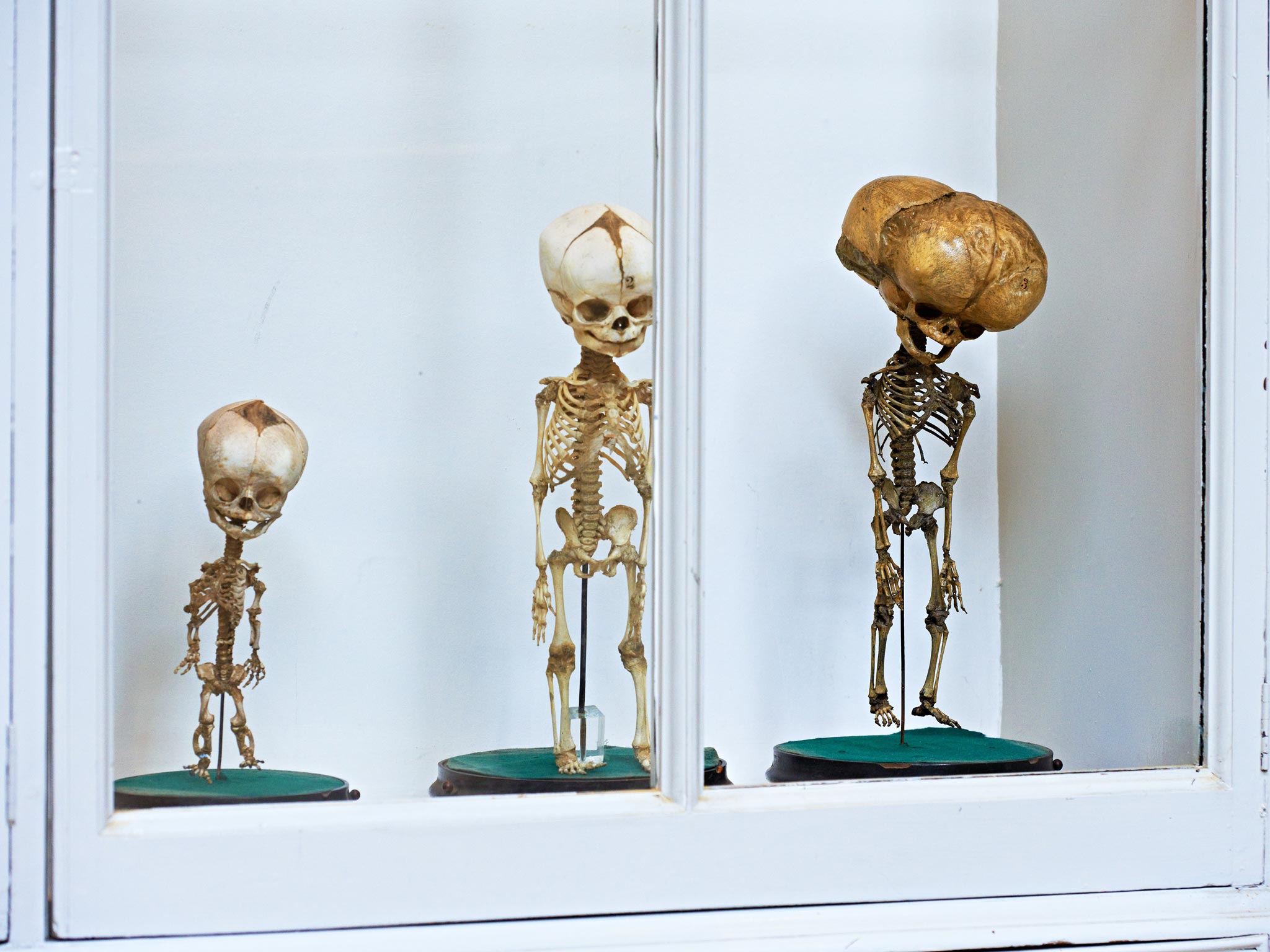To die for: Death Salon mortality conference - the event meant to help you go out with a bang
Fun day out for embalmers as event hits London

Your support helps us to tell the story
From reproductive rights to climate change to Big Tech, The Independent is on the ground when the story is developing. Whether it's investigating the financials of Elon Musk's pro-Trump PAC or producing our latest documentary, 'The A Word', which shines a light on the American women fighting for reproductive rights, we know how important it is to parse out the facts from the messaging.
At such a critical moment in US history, we need reporters on the ground. Your donation allows us to keep sending journalists to speak to both sides of the story.
The Independent is trusted by Americans across the entire political spectrum. And unlike many other quality news outlets, we choose not to lock Americans out of our reporting and analysis with paywalls. We believe quality journalism should be available to everyone, paid for by those who can afford it.
Your support makes all the difference.“This is fun for me,” enthuses Philip Martin, an embalmer and funeral service educator who flew from Melbourne to take part in the Death Salon, an event designed to face down the ultimate taboo. “We rarely get together to talk about death in the funeral industry.”
Amid the skulls and specimens preserved at Barts Pathology Museum in east London, 100 participants are satisfying their morbid curiosity at a three-day, sold-out seminar, which provides an opportunity to “discuss mortality and mourning in a relaxed setting.”
Papers presented at the conference included Lifting the Lid on Dying and Funerals, A History of the Fear of Premature Burial and, for lighter relief, Cinematic representations of the necrophilia/aesthetic corpse trope.
The subject matter may be a little gloomy but the atmosphere is anything but. Morticians, academics, funeral directors - clutching coffee mugs bearing the logo “keep calm and drive the hearse”- and the simply death-curious, excitedly debate the last knockings between sessions. Death Salon pin badges are sold for £5 next to copies of the Natural Death Handbook.
“My aim is to get the public interested in death and pathology,” said Carla Valentine, the Barts museum curator, who brought Death Salon to Britain after learning of a Los Angeles event last year. “I think it’s a subject for everybody. It’s a total sell-out so it’s a topic people are increasingly warming to.”
Ms Valentine, a qualified mortuary technician who sports a heart pendant emblazoned with the words "Morbid Blonde" on her website, hopes to challenge the sanitised discussions about death found in popular culture. She wants to “empower” people to organise their own funerals, which would help families avoid expenditure on high street funeral directors.
Introducing Friday’s programme, Ms Valentine, who preserves the museum’s specimens in her day job, points out the fire exits. “We hope you don’t die – but if you do, lots of people here will take good care of you.”
“I live, eat and breathe organ donation but that’s not the case for everyone else,” admits Kirsty McNally, a specialist NHS Organ Donation nurse, who delivers a talk on the myths surrounding life-saving transplants.
Asking a distraught relative to respect the wish of a loved one, on the point of their death, and to consent to a transplant is a hugely sensitive task, she says. People often wrongly believe the organs will be harvested before death. “The eyes are the most difficult to get,” she says. “People are emotionally attached to their eyes.”
Joanna Kirby, who works in accountancy marketing, said her friends were “shocked” that she was attending the Death Salon. “I’ve lost family members recently and suffered a lot of grief. Death is not something we talk about enough,” said Ms Kirby, who wore a silk scarf emblazoned with skulls. “It’s something I’d like to get more involved with.”
Annie Broadbent, author of We Need To Talk About Grief, spoke about her experiences following death of her mother when she was 25, a discussion which embalmer Mr Martin said he would find “invaluable” to draw upon when talking to bereaved relatives.
The cultural impact of death was explored in presentations on Victorian Anatomy Museums and the Necropolis Railway, which ran daily from Waterloo to Brookwood Cemetery in Surrey, carrying cadavers and mourners – one-way tickets were issued for coffins and a sign above a licensed bar at the journey’s end read “spirits served here”.
Nicholas Wheatley, a retired solicitor, who was once survived a car crash with a woman called Mrs Death, unveiled a model “ghost train”, featuring a grim reaper. “I am very keen to spread the word about death,” said Mr Wheatley, who believes his creation will make death a more accessible, fun topic for children.
The conference concludes on Saturday with a “post mortem” session, discussing dead body disposal technology and the “future of death”.
The participants, who paid £60 for a three-day ticket, felt they had benefited by staring death in the face. Holly Carter-Chappell, Collections Assistant at Florence Nightingale Museum, said: “I study the ethics of archaeology and legislation over the use of human remains. It’s been fascinating to meet academics in the field of death as well as funeral directors and carers. And also to speak to living people as the objects I come into contact with are very much dead.”
With death apparently going nowhere in a hurry, the conference is set to become an annual event.
Join our commenting forum
Join thought-provoking conversations, follow other Independent readers and see their replies
Comments